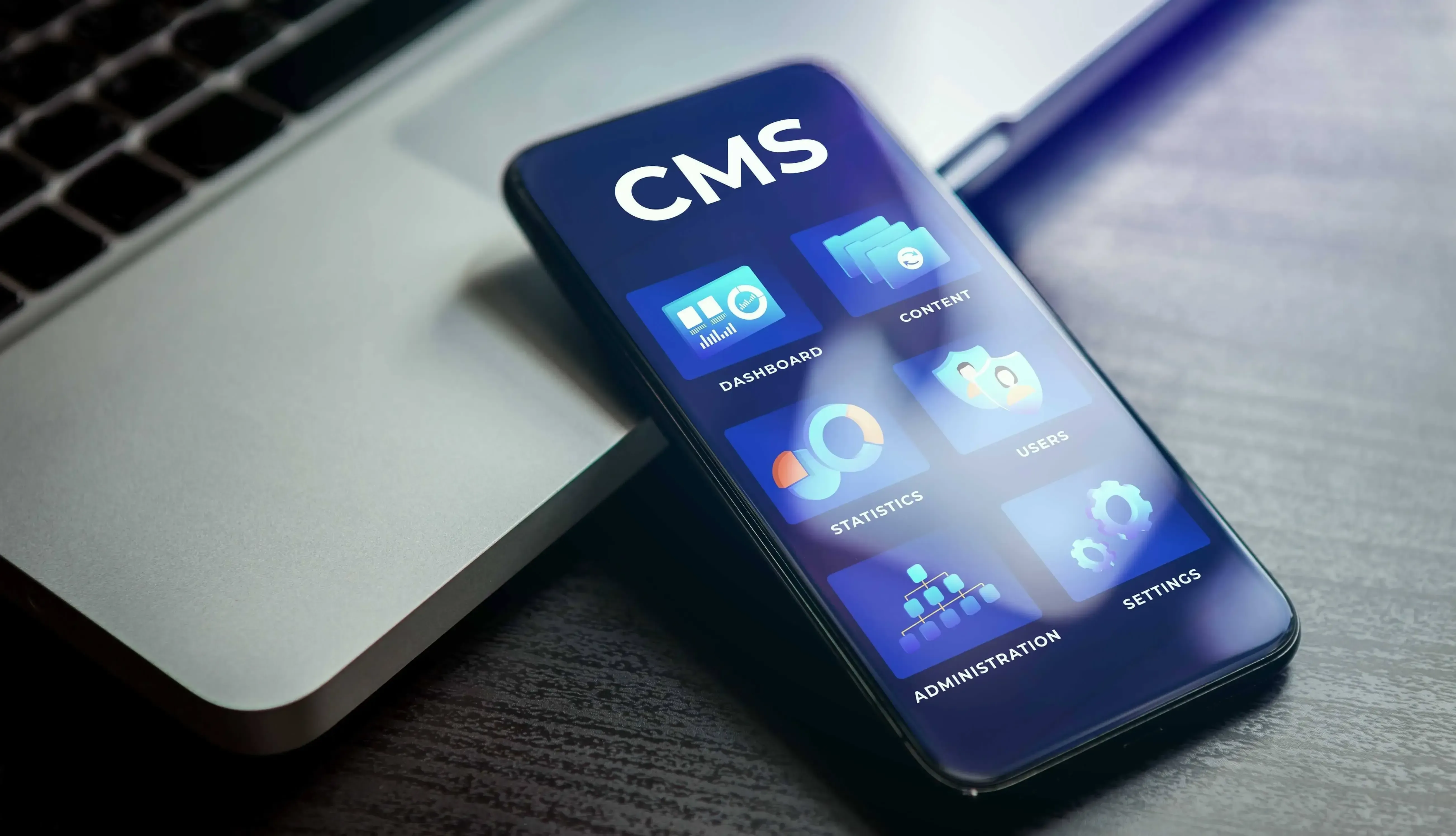A fully functional website is achievable in mere seconds; maybe that's a bit of a stretch, but who is to say this would not be possible in the nearest future? A few years ago, nobody would have believed it would be possible to build a website with a few lines of code or no knowledge of programming languages.
The CMS (Content Management System) application pushed the envelope and has been a boost in the digital content development scene. It has improved the development of websites for technical and non-technical users by making web publishing more accessible. Individuals with no desire to learn how to write code and build websites or web applications from scratch to sell their products and services now have software that allows them to build websites by following instructions.
This article will assume that you have basic knowledge of Content Management Systems (CMS), including the types and features. Its intent is on the disadvantages and advantages of CMS. If you’re unfamiliar with what CMS is and what it’s about, let’s go through a brief explanation of CMS.
What is CMS?
Content Management System Explained

CMS is a software/application that enables users to create, publish and modify content, usually to build a website without technical experience or prior knowledge.
Building a simple website, before the development of the CMS software involved using HTML, CSS, and JavaScript. Database, admin interfaces, login, and updates also needed to be constructed; the software/application now manages all the technicalities of developing a fully functional website.
Websites used to be static; web pages were stored in folders using a hypertext markup language to link files back to each other. There were thousands of directories to manage, making simple changes required shuffling in and out of directories, there was nothing like Cascading style sheets and databases, etc. Imagine how stressful it was for webmasters to stay organized.
The early 2000s introduced open-source CMS alternatives like WordPress, Drupal, and Joomla. For example, WordPress included plugin architecture and templates to build websites without requiring users to have knowledge of HTML and CSS. Now, Everyone can use a CMS which allows users access to an administrative panel dashboard while automatically providing the required programming language.
The Components of CMS
The essential components of the content management system (CMS) are:
1. CMA (Content Management Application)
2. CDA (Content Development Application)
CMA
The content management application is the front side of CMS that allows users to create, manage and edit content using the built-in tools provided.CDA
The content delivery application deals with the back-end of CMS, and it is responsible for delivering the content you create.
CMS Navigation
Navigating the CMS can be On-Premise or Cloud-based:
On-Premise
If a CMS is downloaded and installed on a server by a web host or a local host it is referred to as an “On-Premise” CMS installation. This is because it is on a server users have control over and can make changes directly to the source code as necessary. Examples are; Drupal, Joomla, wordpress.org, etc.Cloud-based
When a CMS seller provides a user with a cloud-hosted environment where the user can create and manage a website, it is referred to as “Cloud Based CMS”. With this type of installation, you do not have access to make changes to the “core” or the source code of the CMS. A team of developers manages the back-end side which deals with functionalities on the platform. Examples are; Wix, Shopify, and wordpress.com
CMS is unique; the software enables users to build blogs, ecommerce sites, e-learning platforms, and other kinds of websites. However different these CMS sites are, they share similar features like;
Provision of tools to build digital content requiring no lessons on how to code.
Incorporates authentication mechanisms for security purposes to prevent unauthorized access to vital information.
Editing is allowed after content has been published.
Backup solutions are available as plugins, extensions, or third-party services to protect your website in case of an attack or malfunction.
Personalization and analytics tools enable you to personalize the customer experience and also help interpret data to understand customer interactions.
Provision of a way to index, search and retrieve contents e.g. grouped templates.
Extensions and add-ons are on CMS platforms. This separate software that you can install on your CMS software allows you to interact with features that are not available on the CMS platform but can increase the functionality of your website.
Pros and Cons of CMS
Pros
Cons
Advantages of CMS
Ease of Use
CMS makes building websites easier and faster, saving you from the stress of building from scratch. The interface is usually easy to navigate. It requires no coding experience.Ease of Access
A CMS can be accessed easily. All you need is access to a good internet connection to connect to a cloud-based or on-premise CMS.Customization
Some CMS allow for customization, which means you can customize themes for your website. This can be done by applying themes to your website “take note that the Theme must also be mobile-friendly “ etc. Another advantage is for people with programming knowledge; depending on the type of CMS, you can modify the source code to meet your needs.Speed
Developing sites is fast, eliminating the long route of creating a website from scratch. A website that would probably take a month to set up would take just a few hours using CMS software.Organization
CMS allows you to create, edit, store and manage an absolute number of contents. For example, if you are a blogger, you can set timers to post articles on specific days and times.Multilingual Capabilities:
CMS Multilingual capabilities enable users to create content in different languages. To run a multilingual website, you must be sure that the CMS has multilingual capabilities.Versatility
You can create numerous websites with different types of CMS, giving you options to create blogs, e-commerce, e-learning sites, and so much more.Collaboration
Editing the same file by the different authorized users is possible concurrently, at various times, and in separate locations.Security Policies
You can enforce user security policies by adding strict requirements to enable (2FA) two-factor authentication feature when creating an account.Less Expensive
It saves costs, especially for free and open-source management systems. However, you may have to pay for Add-ons (SEO capabilities and payment gateways), design elements, web hosting plan, templates, security, etc.Real-Time Updates
Managing and updating content happens instantly.Search Engine Optimization
SEO plays a significant role in your online presence, so it’s crucial to learn how to use it to your advantage. Being visible would increase your chance of reaching people online to showcase your product or services.
Disadvantages of CMS
- Security Risk
Frequent updates to prevent the software from being at risk is a top priority. Maintenance must be frequent, and if overlooked, the software will be exposed to vulnerabilities, leading to costly attacks like DDOS, SQL Injection, Cross-Site Scripting, and thus affecting users negatively.
- Learning is Essential
For users who want to start using a particular CMS, you must learn its functionality and how to set up a website. Thankfully, there are tips provided to help you learn quickly.
- Man Power
Most people who desire to set up a website for blogging or to sell a particular product or service may not have the time to handle or manage it themselves. Therefore, they hire individuals who can manage the site and make the necessary changes and updates.
- Functional requirement limitation
CMS is not suitable for large projects. Its limitation includes building a product or project with multiple processes, workflows, and stakeholders.
- Expensive Plugins and Widgets
Plugins and widgets available on CMS platforms are relatively expensive to purchase.
- Plugins Overdependence
Most functionalities of CMS are dependent on plugins.
Conclusion
CMS has evolved over the years, and the technology is getting better by the minute. It has become the go-to source for personal brands, companies, and blogs, in building websites with ease.
CMS platforms are diverse, which means to employ these platforms, you must determine which one fits your needs and style.
As highlighted, sites like WordPress, Wix, and Drupal are available at your fingertips, however, you may have to go through procedures to get started, and would need to learn a thing or two to understand what you’re handling. However, all these measures are not hectic, and you are provided with tips to help you get started quickly.
Frequently Asked Questions
What is the best CMS?
Everyone has their own favorite CMS, but the best one for you is the one that matches your business requirements.
Is a CMS hard to use?
No. CMSs can be used with minimal training, and you don’t need a programming background in order to use one.
Do I need a MAC or a special PC to use a CMS?
No, you don’t. Any computer with a web connection and an installed browser should be just fine.
What content management sytems use PHP?
All of the most popular content management systems are compatible with PHP including, WordPress, Joomla, Drupal, and Magento

Jessica Agorye is a witty creative in love with life. She is based in Lagos Nigeria and is currently working on being a full-stack developer. She has worked as a content developer for over 5 years and believes that content is king.
View all posts by Jessica Agorye



















